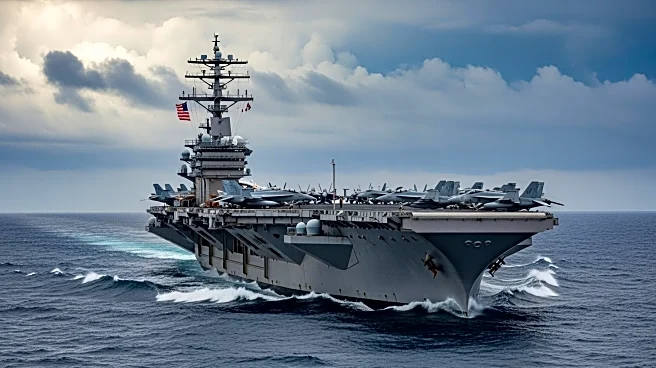What's Happening?
The United States has escalated its military presence in the Caribbean by deploying the Gerald Ford aircraft carrier group to Latin America. This move, announced by President Trump, is seen as a significant
show of force, surpassing previous counter-narcotics operations. The deployment includes additional warships, a nuclear submarine, and F-35 aircraft, raising concerns about the U.S.'s intentions in the region. The Pentagon has stated that the enhanced presence aims to disrupt illicit activities threatening U.S. security, but specifics on the timing and location of the carrier's arrival remain undisclosed.
Why It's Important?
The deployment of the aircraft carrier group represents a strategic shift in U.S. military operations in Latin America, potentially altering regional dynamics. It underscores the U.S.'s commitment to countering perceived threats from illicit actors, including drug trafficking networks. However, this action may exacerbate tensions with countries like Venezuela, whose President Nicolas Maduro has accused the U.S. of attempting to oust him. The military buildup could lead to diplomatic strains and impact U.S. relations with Latin American nations, influencing regional security and political alliances.
What's Next?
The deployment is likely to prompt responses from Latin American governments, particularly those with strained relations with the U.S. Diplomatic efforts may be necessary to address concerns and prevent escalation. The U.S. may also face international scrutiny over its military strategy in the region, potentially affecting its global standing and foreign policy objectives.
Beyond the Headlines
The increased military presence could have long-term implications for U.S.-Latin America relations, potentially influencing future cooperation on security and economic issues. The ethical considerations of using military force in the region may also spark debates on the balance between national security and diplomatic engagement.









